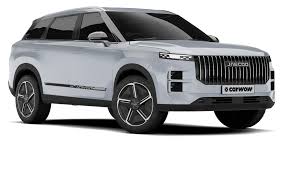Compact Electric Cars Europe 2025
Compact electric cars gained popularity in Europe in 2025. City streets and urban environments require small, agile vehicles. Drivers want efficiency, low running costs, and zero emissions. Automakers produce compact EVs that combine technology, comfort, and performance. Families, commuters, and young drivers prefer electric hatchbacks and small SUVs.
Europe promotes sustainable mobility. Governments introduce incentives, low-emission zones, and tax reductions. Electric cars reduce carbon footprints. Buyers seek vehicles that offer convenience, reliability, and modern design.
Why Choose Compact Electric Cars
Compact electric cars save fuel and reduce pollution. Cities like Paris, London, Berlin, and Madrid enforce low-emission zones. Small EVs avoid fines and gain access to restricted areas.
Drivers enjoy low running costs and minimal maintenance. Batteries last longer, and technology improves efficiency. Urban drivers prefer models that are easy to park, maneuver, and charge.
Top Compact Electric Cars in Europe 2025
Several compact electric cars lead sales. The Renault Zoe remains popular for affordability and range. Honda e offers retro styling with modern technology. Fiat 500e attracts city drivers with its small size and zero emissions. Mini Electric blends premium design with eco-friendly performance.
Hyundai Kona Electric and Kia e-Niro combine compact dimensions with SUV practicality. Volkswagen e-up! And the BMW i3 continues to appeal to environmentally conscious drivers. Compact electric cars balance style, efficiency, and urban practicality.
Battery Range and Charging
Battery range improves significantly in 2025. Compact electric cars achieve 200–300 miles on a full charge. Hyundai Ioniq 5 and Kia EV6 push boundaries with long-range batteries.
Charging infrastructure expands across Europe. Fast chargers allow an 80% charge in 30–40 minutes. Urban drivers can rely on public and home chargers. Range anxiety decreases as battery technology advances.
Performance and Handling
Compact EVs deliver smooth, quiet, and responsive driving. Instant torque allows fast acceleration. Regenerative braking extends battery life.
European roads demand agile handling. Compact cars navigate city streets with ease. Models like Renault Zoe and Honda e excel in tight spaces. Drivers enjoy comfort, control, and efficiency simultaneously.
Urban and City Driving
City life suits compact electric cars. Small dimensions and a tight turning radius make parking easy. Electric motors provide quiet operation. Stop-and-go traffic is efficient with regenerative braking.
Connected features help urban drivers. Navigation, parking sensors, and smartphone integration simplify daily commuting. Compact electric cars suit short trips, school runs, and shopping errands.
Eco-Friendly Family Options
Small electric SUVs and hatchbacks serve families. Hyundai Kona Electric, Kia e-Niro, and Mini Electric provide space and safety. Flexible seating and boot space accommodate children, luggage, and pets.
Families benefit from low emissions and fuel savings. Advanced driver-assist systems enhance safety in European cities. Compact EVs meet the needs of modern urban families without compromising style or comfort.
Technology and Connectivity
2025 compact electric cars feature advanced technology. Touchscreens, digital dashboards, and voice assistants become standard.
AI-assisted driving helps navigation and efficiency. Connected vehicles communicate with charging stations and traffic systems. Over-the-air updates keep software modern. Families and commuters enjoy smart, convenient, and sustainable driving experiences.
Safety in Compact Electric Cars
Safety remains a top priority. Compact electric cars include airbags, lane assist, blind-spot monitoring, and adaptive cruise control.
Tesla Model 3, Mini Electric, and BMW i3 achieve high Euro NCAP ratings. Families trust vehicles that combine low emissions with advanced safety features. Compact EVs provide confidence on city streets and highways.

Cost Efficiency and Incentives
Compact electric cars save money. Zero petrol or diesel costs reduce expenses. Government incentives lower the purchase price. Tax reductions, grants, and subsidies make EVs more affordable.
Low maintenance requirements decrease long-term costs. Families and urban drivers benefit from efficient, budget-friendly solutions. Compact EVs are practical and sustainable choices for cost-conscious buyers.
Environmental Benefits
Electric vehicles reduce carbon emissions and air pollution. Europe emphasizes sustainable mobility. Compact electric cars reduce noise and pollution in urban areas.
Automakers use recycled materials in interiors. Lightweight construction improves energy efficiency. Eco-conscious drivers choose vehicles that align with green initiatives. Compact EVs promote responsible driving and environmental stewardship.
Trends in Compact Electric Cars 2025
Europe trends toward electrification and smart city driving. Compact EVs dominate urban markets. Subscription and leasing options make cars accessible to younger drivers.
Battery technology advances, increasing range and efficiency. Infotainment, connectivity, and AI-assisted systems enhance urban driving experiences. Automakers focus on lightweight, eco-friendly, and stylish compact vehicles.
Popular Brands in Europe
Top brands dominate the compact EV segment. Renault, Fiat, Honda, Mini, Hyundai, Kia, Volkswagen, and BMW lead sales.
Renault Zoe provides affordability and reliability. Honda e blends retro style with technology. Fiat 500e attracts young urban drivers. Mini Electric offers premium design and performance. The Hyundai Kona Electric and Kia e-Niro provide family-friendly options. Volkswagen e-up! And the BMW i3 appeals to eco-conscious buyers.
Choosing the Right Compact Electric Car
Lifestyle determines choice. Urban drivers prefer small hatchbacks. Families may choose compact SUVs. Commuters focus on range and charging convenience.
Test drives show comfort, maneuverability, and usability. Boot space, seating flexibility, and technology features matter. Buyers select compact EVs that match daily needs and reduce environmental impact.
Future Outlook
By 2030, compact electric cars will dominate European cities. Charging networks expand into rural and urban areas. Battery technology improves further. AI, autonomous features, and connectivity become standard.
Compact EVs will continue blending style, efficiency, and practicality. Families, commuters, and young drivers will embrace smaller, eco-friendly cars. Urban Europe will see cleaner, quieter, and greener streets.

Conclusion
Compact electric cars in Europe 2025 combine efficiency, style, and convenience. Hatchbacks and small SUVs reduce emissions, save fuel, and provide agile driving. Families, commuters, and city drivers benefit from technology, safety, and eco-friendly solutions.
From Renault Zoe to Hyundai Kona Electric, Europe offers options for every urban driver. Compact EVs make city life easier, cleaner, and smarter. The future of urban mobility is sustainable, efficient, and accessible to all.
